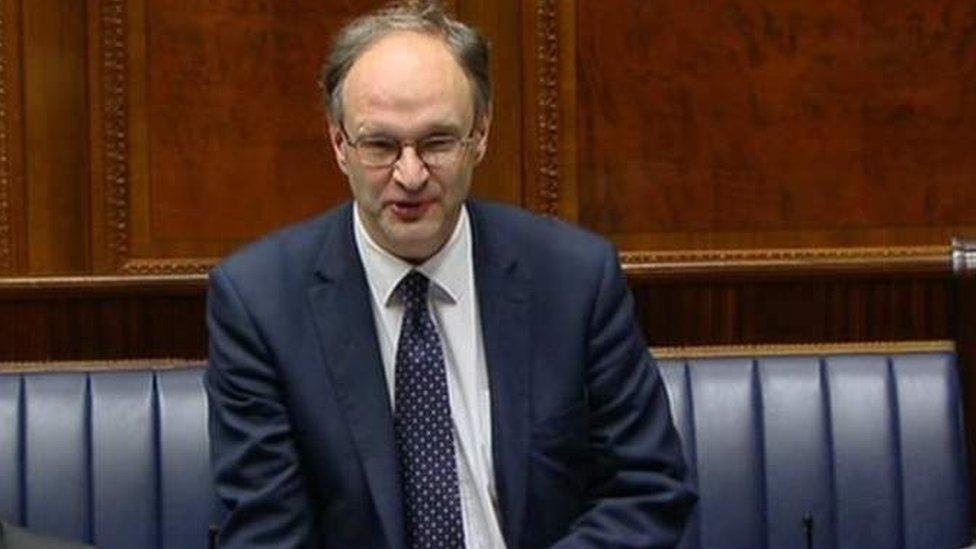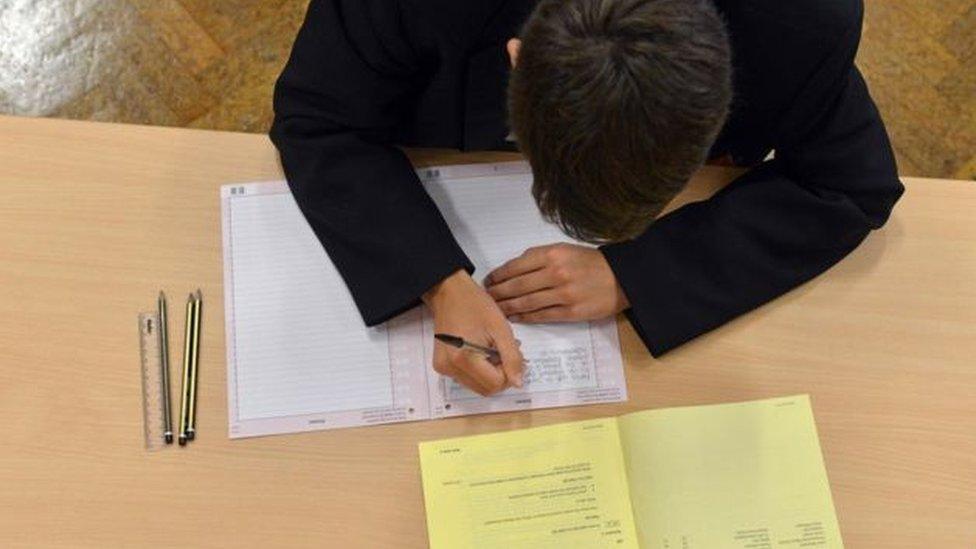Peter Weir: Budget is the big test for new education minister
- Published

Peter Weir will be aware of many of the pressing issues he faces, as he recently chaired Stormont's Education committee
For the first time since the establishment of the Assembly in 1998 Northern Ireland has a DUP education minister.
Only Sinn Féin had held the education post until now.
But Peter Weir will be aware of many of the pressing issues he faces, as he recently chaired Stormont's education committee.
With Simon Hamilton responsible for universities as part of his economy brief, the DUP now oversee every aspect of education - from pre-school through to higher education.
In the run up to the assembly election, the party produced a policy document specifically on education which set out their priorities.
While they firmly back academic selection, it is unlikely that they will attempt to reintroduce a Northern Ireland-wide test.
Instead, it is likely that it will become easier for primary schools to teach to - and facilitate - the current Association of Quality Education and Post Primary Transfer Consortium-run tests.
However, the new minister may press both bodies to find a common test rather than continue to run separate ones.
The big problem facing Mr Weir will be money.
The education budget has fallen, while costs are rising.
Many school leaders warn that they are facing deficits which could lead, in the worst cases, to staff and subject cuts and higher class sizes.
The DUP have said that they support more money going directly to schools, so principals may have more say on what their budget is spent on - if not more funding overall.
In addition, the new minister may take a fresh look at the area planning process.
That aims to ensure that the size of schools and where they are located meets the needs of pupils.
A number of reports have said that we have too many schools in Northern Ireland.
Closing or merging a number of those deemed unsustainable would undoubtedly help save money, but, in practice, any move to do that inevitably meets strong local opposition.
'Challenges'
The DUP also broadly backed the "shared education" approach favoured by previous minister John O'Dowd, where individual schools from different backgrounds collaborated while maintaining their own independence and ethos.

One change that the DUP has committed to is to change the GCSE-grading system to bring it in line with changes taking place in England
So it is unlikely that the integrated sector, which educates about 7% of pupils, will grow significantly in the coming years.
One change that the DUP has committed to is to change the GCSE-grading system to bring it in line with changes taking place in England.
That means that pupils in Northern Ireland will soon get grades from 1-9 rather than A*-G when they get their GCSE results, and should mean schools can re-introduce exams set by English examining boards.
Mr Weir's appointment has been broadly welcomed by representatives from a range of sectors, who believe that he is well aware of the challenges they face.
However, those in the Irish medium sector may be a little nervous about a DUP minister committed to tackling what the party criticised as "preferential treatment" when it came to money for new school buildings.